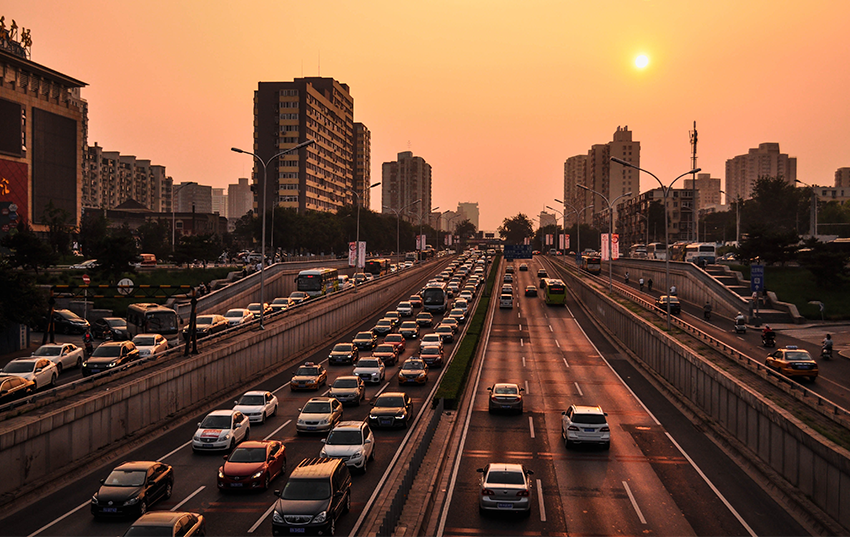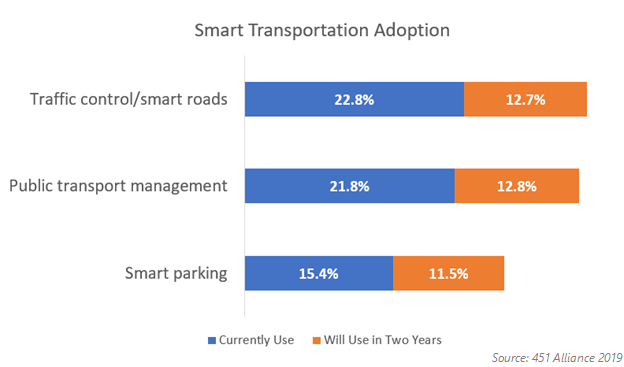
With the world’s population continuing to rise – and with millions of people migrating to cities from their rural hometowns – traffic and urban congestion will only grow. Already-clogged roadways may come to a complete standstill as more cars take to city streets.
However, smart technologies are being developed just in time to solve this looming problem.
While Internet of Things (IoT)-enabled smart transportation services probably won’t eliminate traffic completely, it should reduce congestion and make public transport more efficient. Adoption of these technologies is already on the rise, according to a recent 451 Alliance survey.

Today we’ll look at specific use cases where you might see these smart technologies popping up on a road near you.
Parking
With more cars and people cramming into cities, available parking spaces will become few and far between. Smart parking companies have been attempting to solve this problem.
For example, some help drivers find open parking spots and reserve them, while others monitor spots for parking operators and city governments to streamline back-end operations and promote efficiency.
Companies like SpotHero, ParkMe and ParkWhiz help drivers book parking spots before they arrive and more easily pay for them when they are done. Many companies also offer real-time information on available public street spots and curbside capacity in addition to lot availability.
A second class of companies such as Cleverciti focuses on parking management and integration with back-end city systems like enforcement and city planning. This technology is often delivered via SaaS to private operators, municipalities, universities and other entities that are looking to digitize their parking operations.
Traffic
There over a billion cars on the roads today, and that number is expected to reach two billion worldwide by 2035.
Rather than investing billions of dollars in building new infrastructure and roadways that will inevitably become just as congested as the existing ones, some cities are turning to smart traffic monitoring and management systems to fight congestion.
Some of these tools are consumer-facing such as Google’s Waze, which helps drivers to reroute to avoid delays. Others aim to help cities and governments better manage traffic and congestion, using real-time mobile and other data sources to understand city-wide traffic patterns.
Transit
Just as more cars will be taking to the roads, more commuters will be filling buses, subways, trains, ferries and other forms of public transit. Travelers will look for alternatives, and the quickest (and usually cheapest) alternative is public transportation.
Companies such as Swiftly are attempting to improve the timeliness and efficacy of public transit options. They analyze real-time passenger data via an overlay application that accesses computer-aided dispatch and automated vehicle location technologies already in place. Swiftly’s largest market is Boston, where it works with the Massachusetts Bay Transportation Authority.
As mentioned above, the growth of congestion isn’t something that cities will be able to build their way out of with new roads and parking spaces. Instead, they’ll have to solve this problem with data on vehicles, riders, and parking and traffic infrastructure, using it to increase the efficiency of their parking spots, roads and public transportation.
Want insights on emerging technology trends delivered to your inbox? Join the 451 Alliance.
